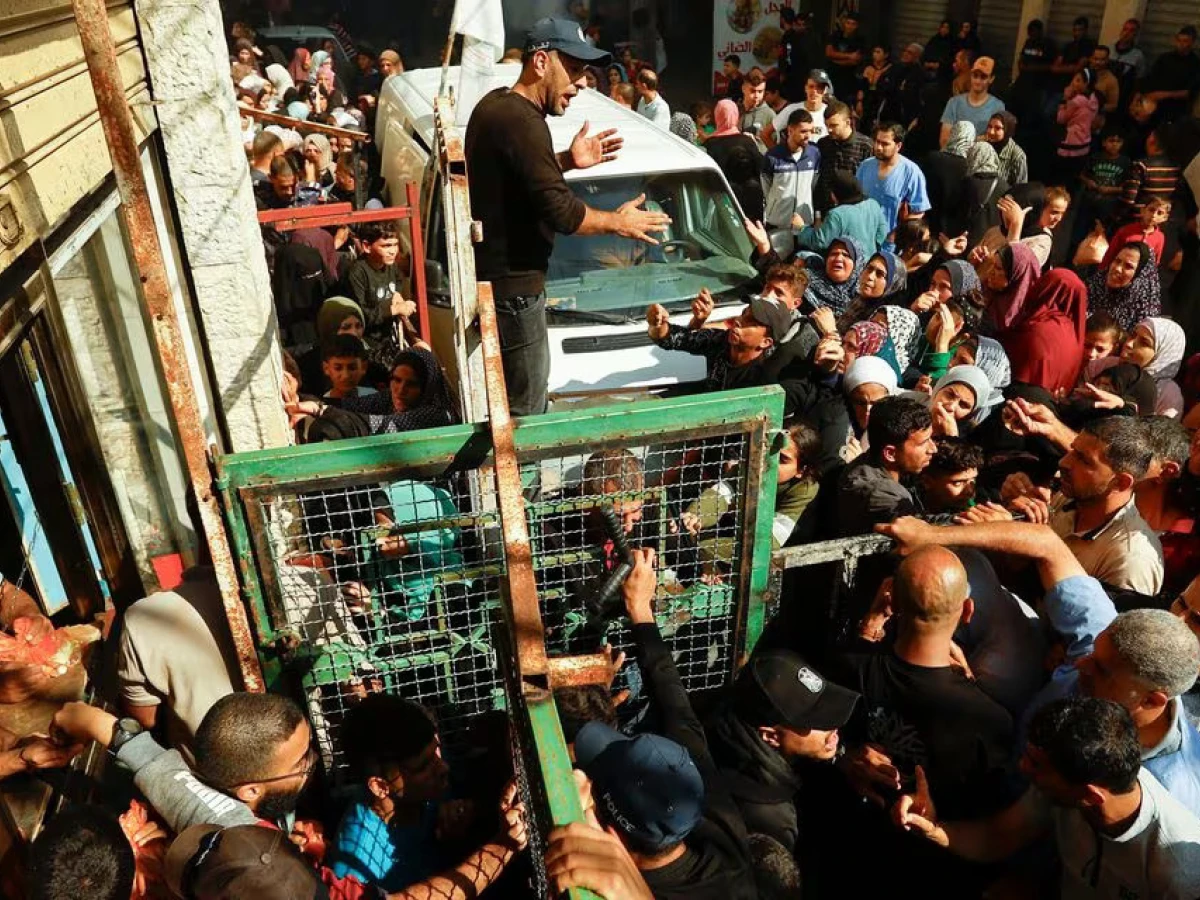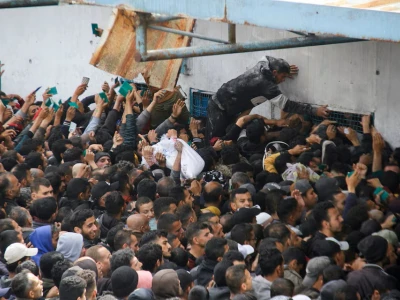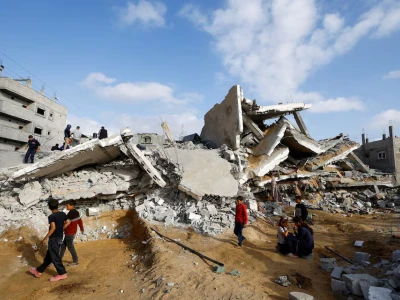
Israel says it will let more aid into Gaza as UN warns of hunger and disease
Al Shifa staff said a premature baby died at the hospital on Friday, the first baby to die there in the two days since Israeli forces entered.
GAZA/JERUSALEM, Nov 17 (Reuters) - Israel agreed on Friday to let fuel trucks into Gaza and promised "no limitation" on aid requested by the United Nations, appearing to bow to international pressure after warnings that its siege of the Palestinian enclave would cause starvation and disease.
Israel said it had agreed to let in two truckloads of fuel a day at the request of Washington to help the United Nations meet basic needs, and spoke of plans to increase aid more broadly, including setting up field hospitals to treat wounded Gazans.
"We will increase the capacity of the humanitarian convoys and trucks as long as there is a need," Colonel Elad Goren, from COGAT, the ministry of defence agency that coordinates administrative issues with the Palestinians, told a briefing.
"Every list that we get from the U.N. will be delivered. We will check it and it will enter Gaza, so it’s up to the U.N. to give us those lists. And if there is a need for 400 trucks, tomorrow there will be 400 trucks. We are not limiting this issue. There is no limitation."
While Israel has promised to allow in aid in the past, the remarks appeared to signal a shift in tone after U.N. agencies warned that humanitarian conditions for 2.3 million Gazans were rapidly deteriorating, including a stark warning from the World Food Programme of the "immediate possibility of starvation".
The move could open division in Prime Minister Benjamin Netanyahu's hardline cabinet. Far-right Finance Minister Bezalel Smotrich called the decision to allow in fuel a serious mistake:
"It conveys weakness, it gives oxygen into the enemy," he said in a statement.
Israel has vowed to annihilate the Hamas militant group that controls Gaza, since its fighters killed 1,200 people and dragged away 240 hostages on a deadly rampage on Oct. 7.
Since then, Israel has bombed much of Gaza to rubble, ordered the depopulation of the entire northern half of the enclave and made around two-thirds of Gazans homeless.
Gaza health authorities raised their death toll to more than 12,000 people confirmed dead, 5000 of them children, with many others trapped under rubble. The United Nations has deemed those figures credible, though they are now updated infrequently because of the difficulty collecting information.
At Gaza's biggest hospital Al Shifa, focus of international alarm this week as a primary target of Israel's ground assault, Israel said its forces had found a vehicle with a large number of weapons, and an underground structure it called a Hamas tunnel shaft, after two days searching the premises.
The army released a video it said showed a tunnel entrance in an outdoor area of the hospital, littered with concrete and wood rubble and sand. It appeared the area had been excavated. A bulldozer appeared in the background.
The army also said it had found the bodies of two hostages in buildings near, though not inside, the hospital grounds.
Israel has long maintained that the hospital sat above a vast underground bunker housing a Hamas command headquarters. Hospital staff say this is false and that Israel's findings there have so far established no such thing.
Hamas denies using hospitals for military purposes. It says some hostages have received treatment at medical centres but they have not been held inside them.
'LIVING NIGHTMARE'
Al Shifa staff said a premature baby died at the hospital on Friday, the first baby to die there in the two days since Israeli forces entered. Three had died in the previous days while the hospital was surrounded.
Israel had said it would send help including incubators to rescue 36 babies being kept eight-to-a-bed since the neo-natal ward was knocked out last week. But staff said the Israelis allowed in no meaningful aid for the babies or hundreds of other patients and thousands of displaced people trapped there.
Five babies were in a very serious condition, Al Shifa hospital compound director Muhammad Abu Salmiya told Al Jazeera.
"We are trying to keep them alive, wrapping them in cellophane, putting bottles of hot water near them to keep them alive, our attempts are what is keeping them alive."
The last hospital fully functioning in the northern half of Gaza, Al Ahli, was forced to close its surgery department after it ran out of anaesthetics. British-Palestinian surgeon Ghassan Abu Sitta, who escaped on foot to the south, told Reuters he had decided to leave because he was now powerless to help patients.
"It has been a living nightmare - leaving 500 wounded knowing that there's nothing left for you to be able to do for them, it's just the most heartbreaking thing I ever had to do," Abu Sitta said by phone.
'WE WON'T FORGET, OR FORGIVE'
In Modiin, Israel, family held a funeral for Noa Marciano, 19, an Israeli army conscript whose body was recovered from Gaza City near Shifa hospital on Thursday. She had been abducted from a military base during the Hamas attack on Oct. 7.
"Today we're asking for your forgiveness ... You protected us, but we failed to protect you," her sobbing mother said, wearing a t-shirt emblazoned with a photo of her smiling daughter in her high school graduation robes. "You are resting now, but we will not stop. We won't forget or forgive."
The military said it had also recovered the body of Yehudit Weiss, 65, a mother of five who was seized from Kibbutz Be’eri.
Hamas announced the death of another captive, an 85-year-old it said had died of a panic attack during an air strike.
With the war about to enter its seventh week, there was no sign of any let-up despite international calls for a ceasefire or at least for humanitarian pauses.
"We are determined to advance our operation," said Israel's chief military spokesperson Rear Admiral Daniel Hagari.
"It will happen wherever Hamas exists, including in the south of the (Gaza) strip."
Related
Related

Gaza's catastrophic food shortage means mass death is imminent

Gaza pier resumes operations as aid collects in marshalling area

US officials say in memo Israel may be violating int. law in Gaza

